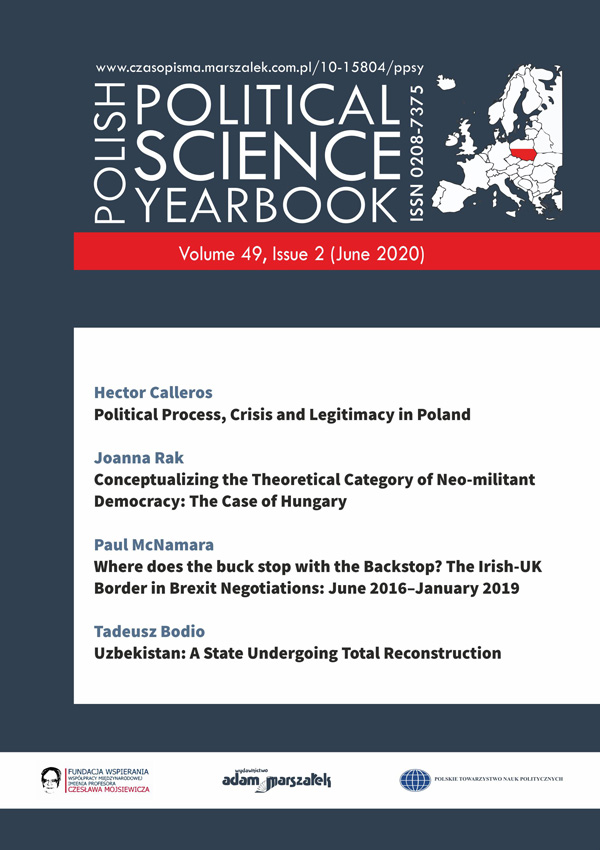Conceptualizing the Theoretical Category of Neo-militant Democracy: The Case of Hungary
Conceptualizing the Theoretical Category of Neo-militant Democracy: The Case of Hungary
Author(s): Joanna RakSubject(s): Politics / Political Sciences, Social Sciences
Published by: Wydawnictwo Adam Marszałek
Keywords: militant democracy; Karl Loewenstein; neo-militant democracy;authoritarianism; political regime; hybrid regime; Hungary;
Summary/Abstract: The article aims to formulate a theoretical category of neo-militant democracy that applies to study the nature and dynamics of democratic regimes after the 2008 econom-ic crisis. It conducts an empirical test to verify the analytical effectiveness of the redeveloped category. The test takes a form of the case study of the Hungarian political system. Apart from a verification-objective, the research aims to identify and account for the dynamics of the Hungarian regime in terms of the neo-militant democracy principle. The qualitative method of source analysis serves to collect data on the processes of becoming neo-militant democracy. The selection of sources is deliberate and oriented on finding information about the implementation of neo-militant democracy measures in Hungary (2008–2019). The technique of qualitative content analysis applies to identify the nature of these processes. The theoretical tool is the category of neo-militant democracy, which simultaneously un-dergoes the empirical test. The main argument is that the process of becoming neo-militant democracy took a traditional form since the Hungarian neo-militant democracy principle drew on the traditional means introduced by Loewenstein rather than innovations advanced by the current research
Journal: Polish Political Science Yearbook
- Issue Year: 49/2020
- Issue No: 2
- Page Range: 61-70
- Page Count: 10
- Language: English

